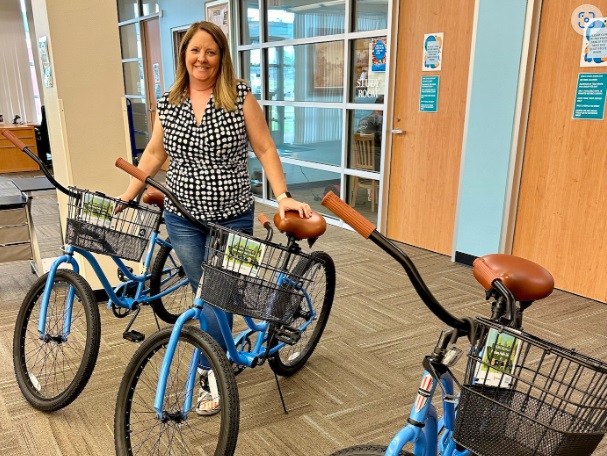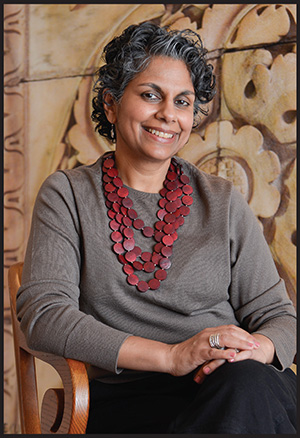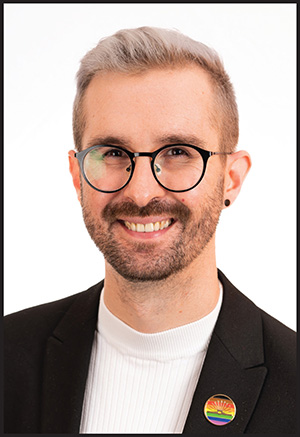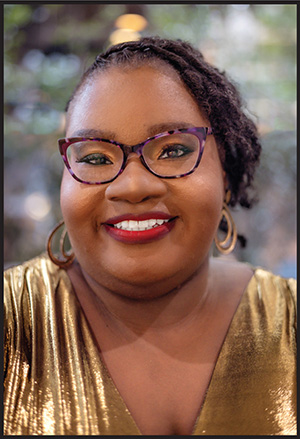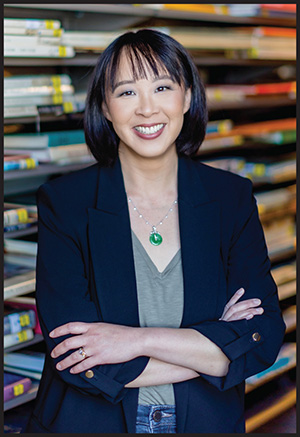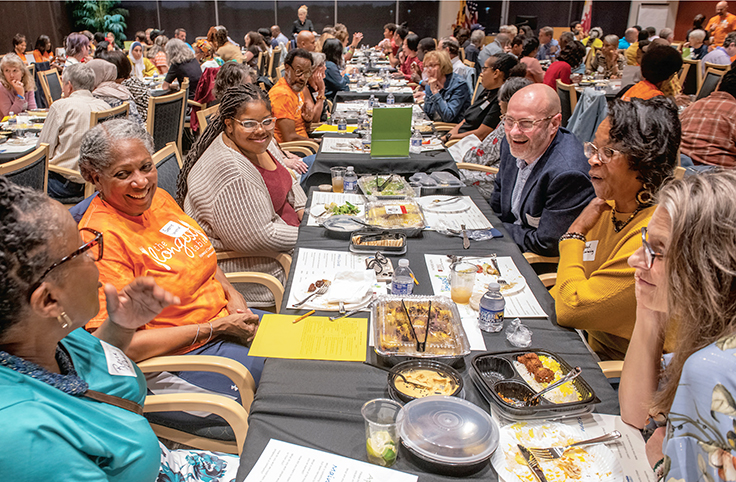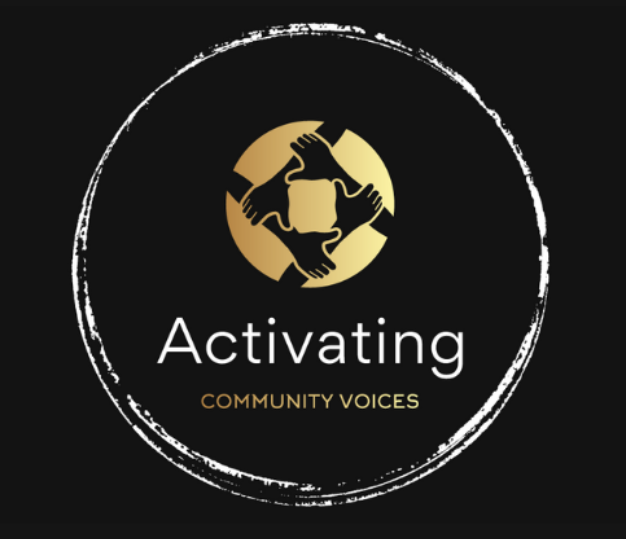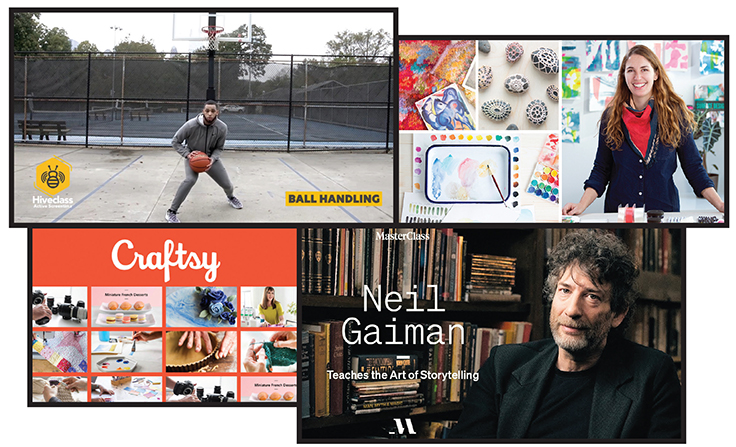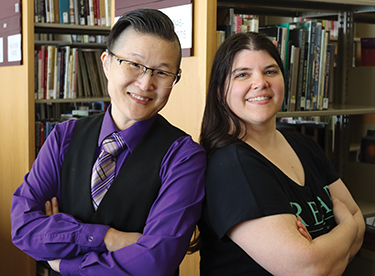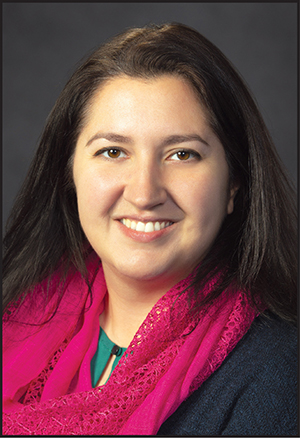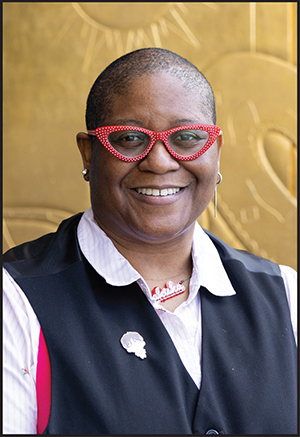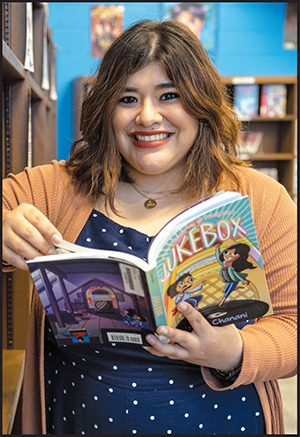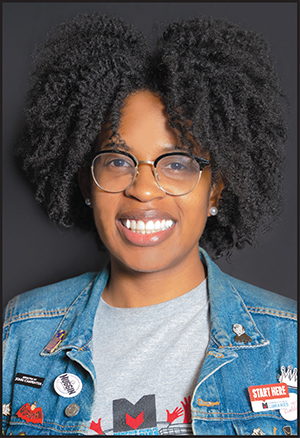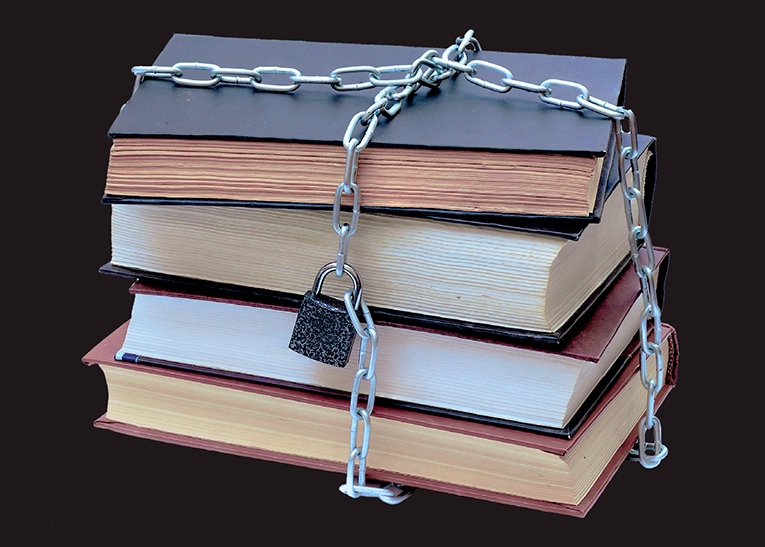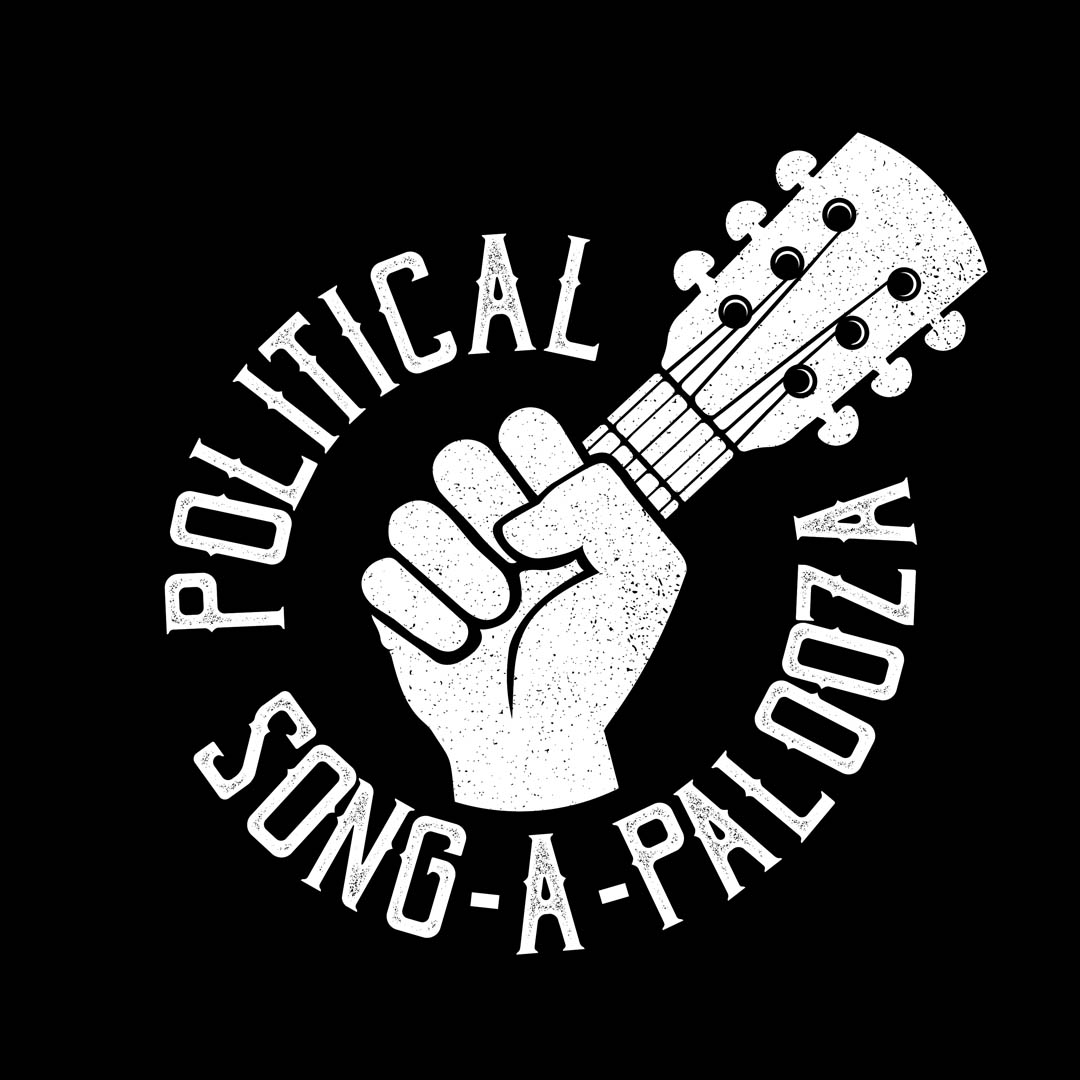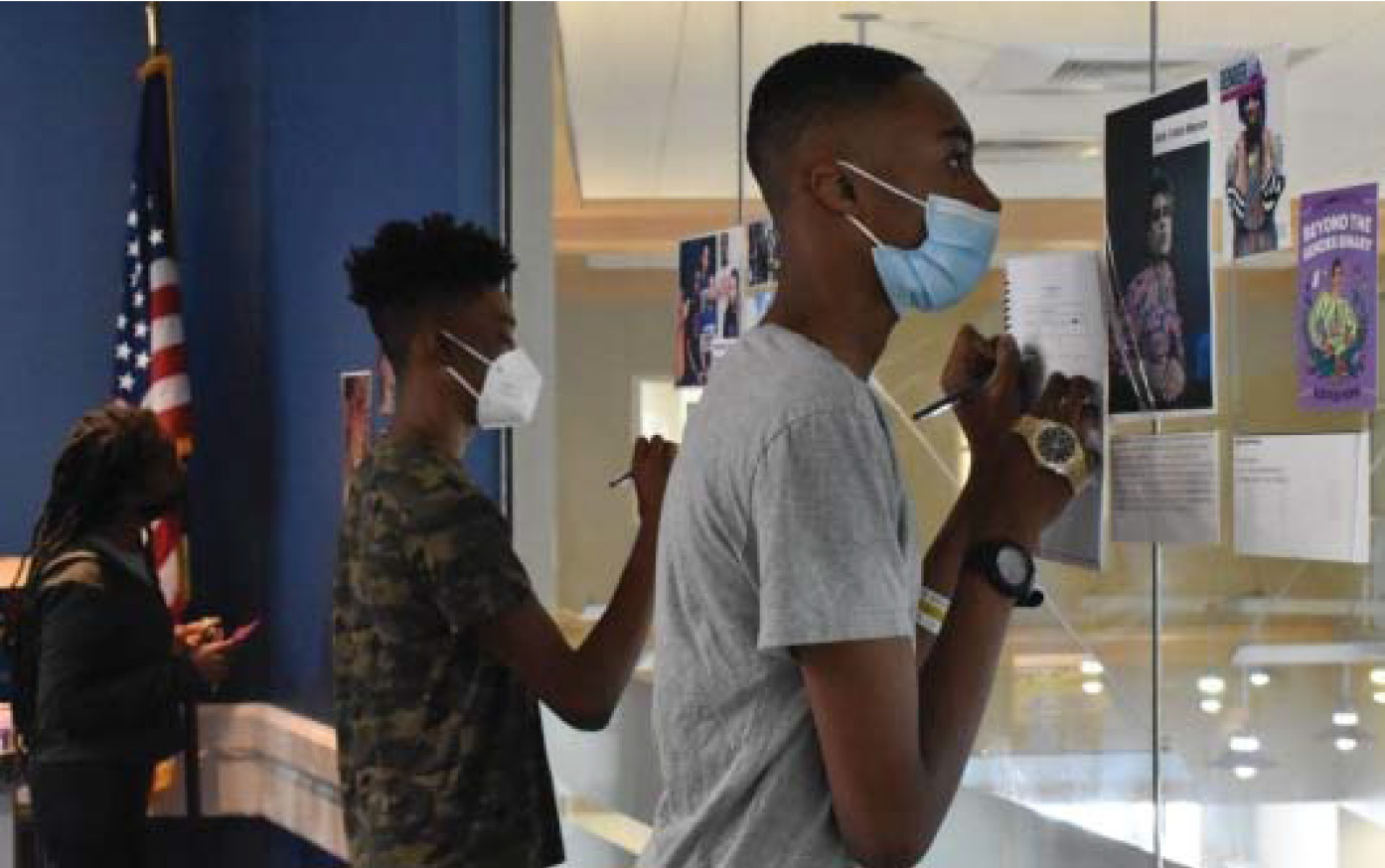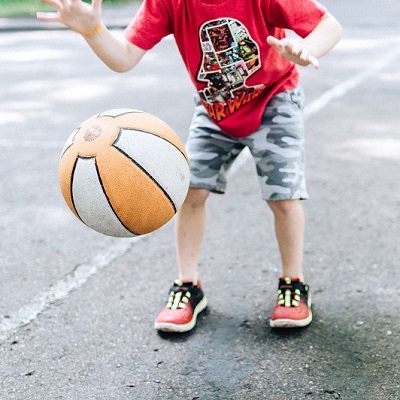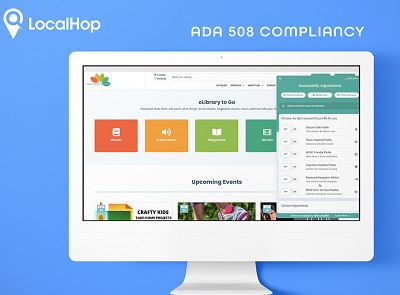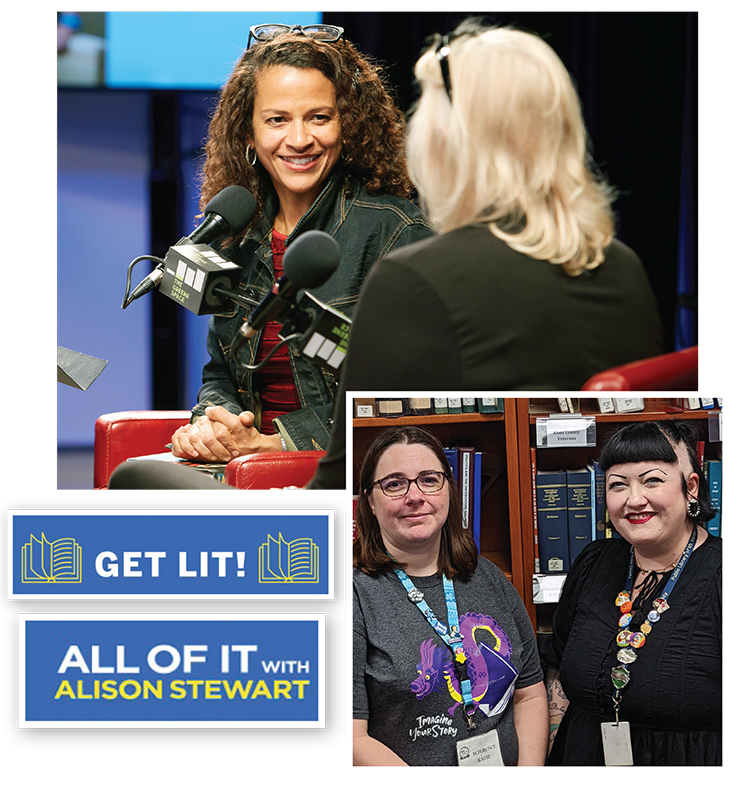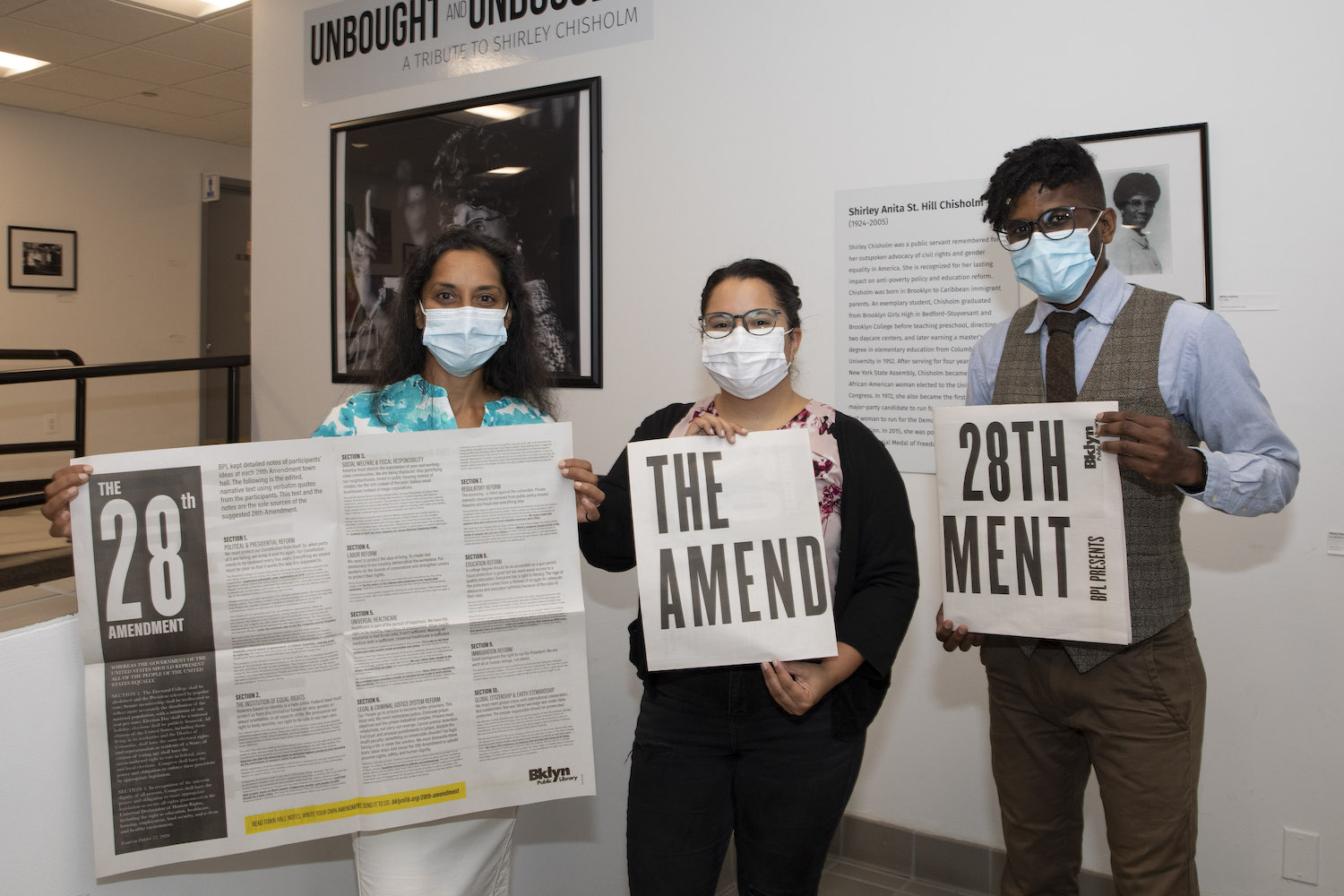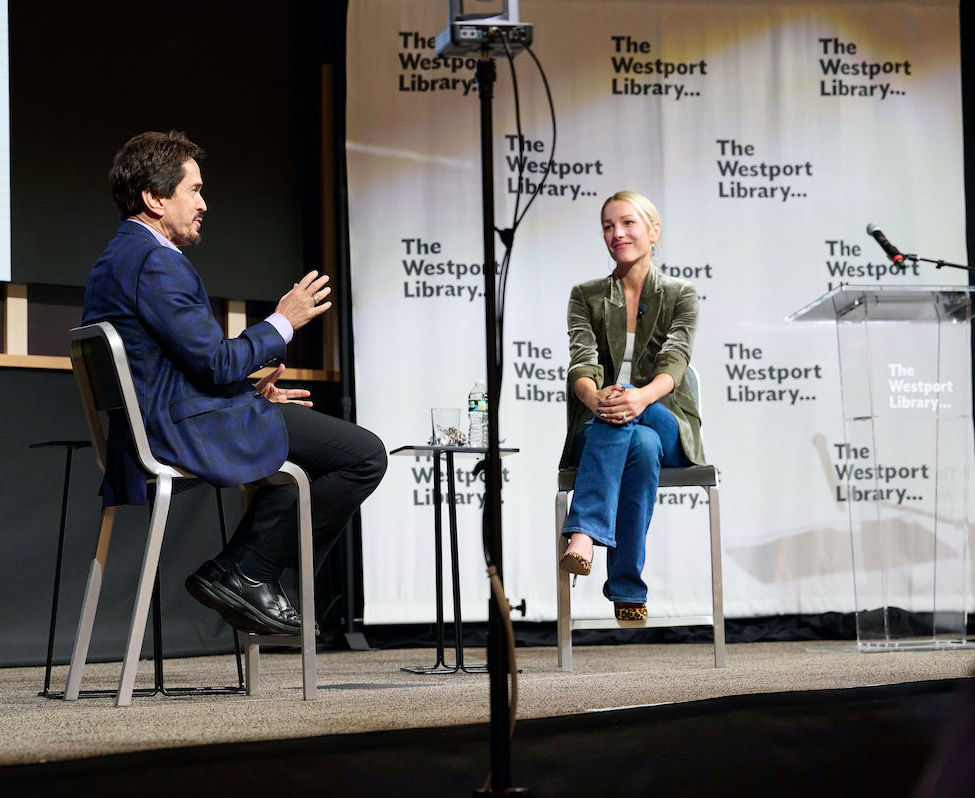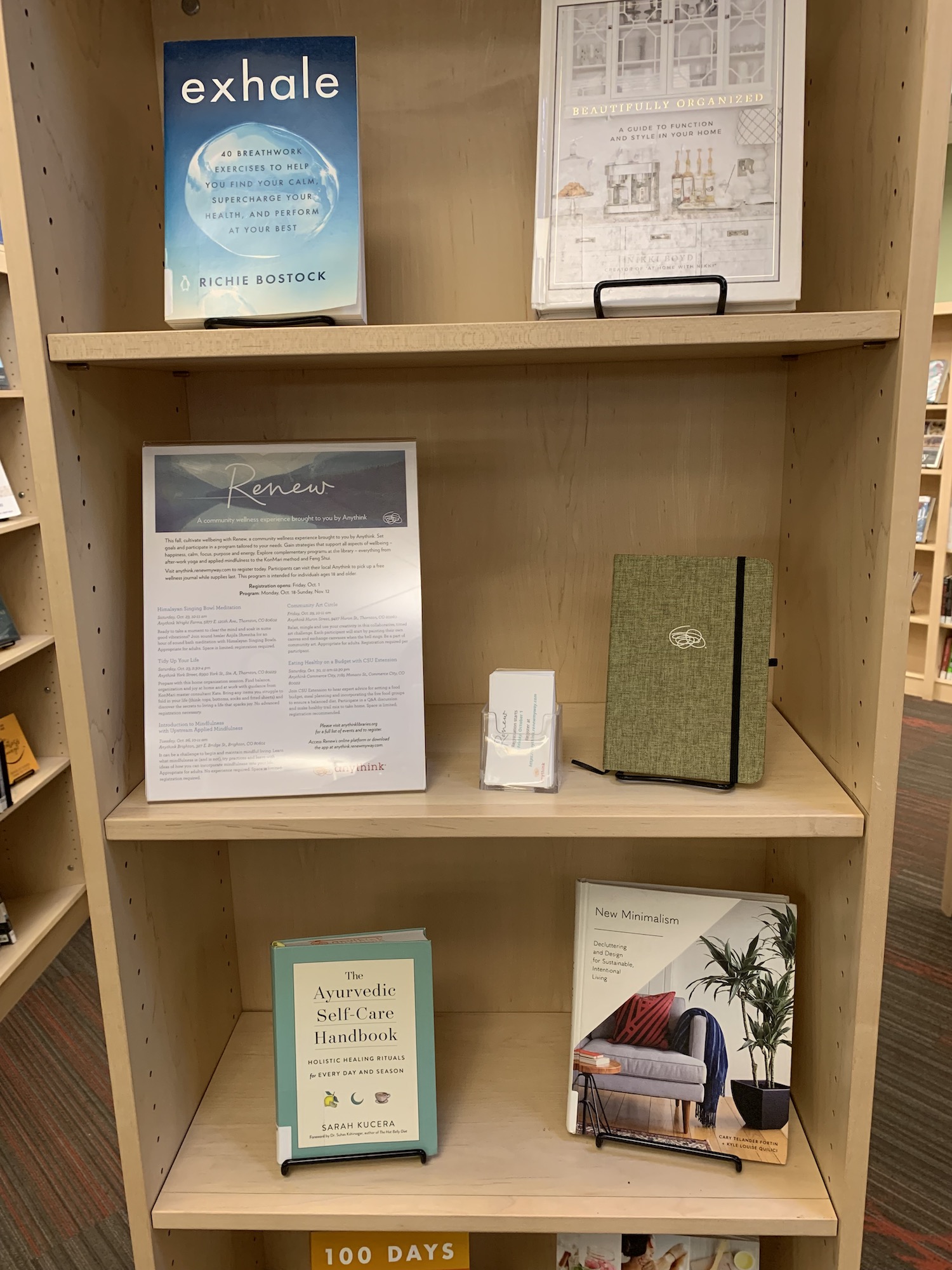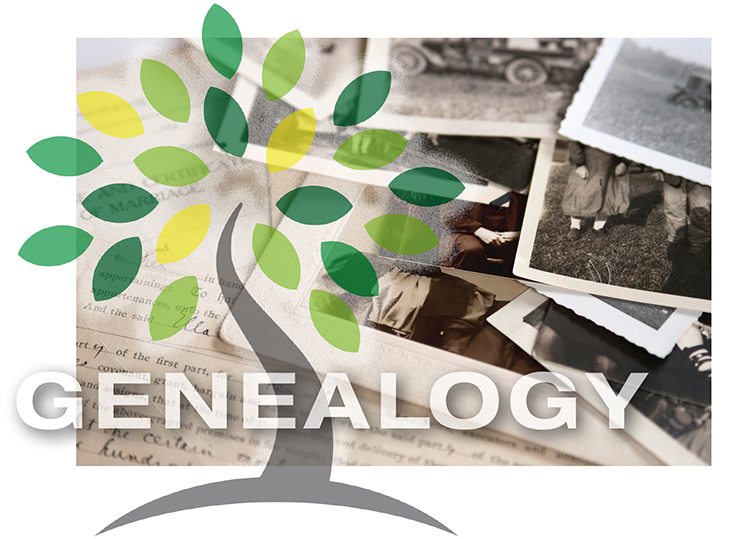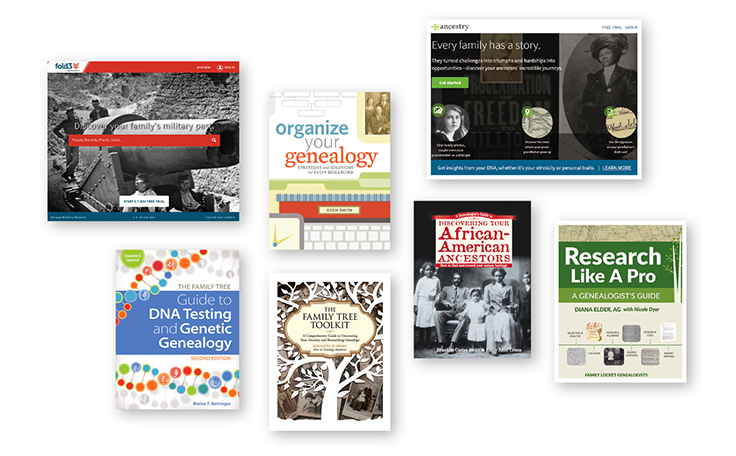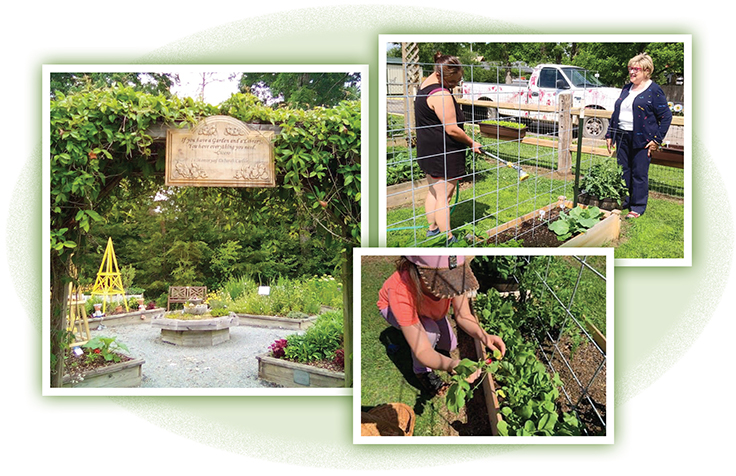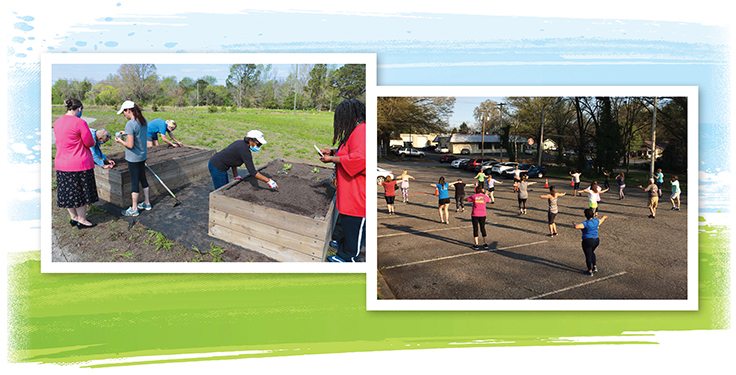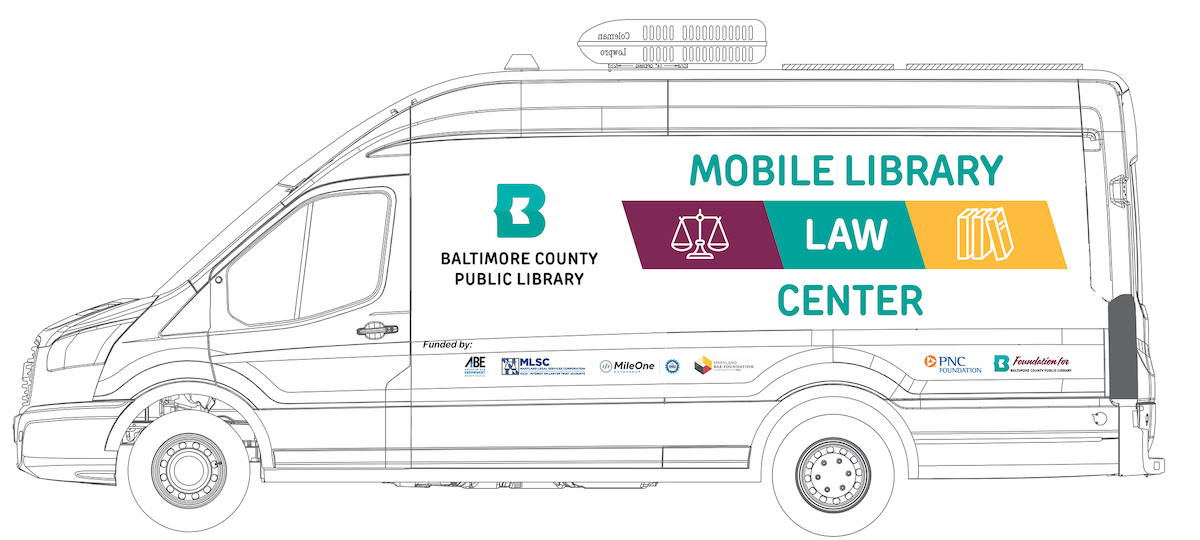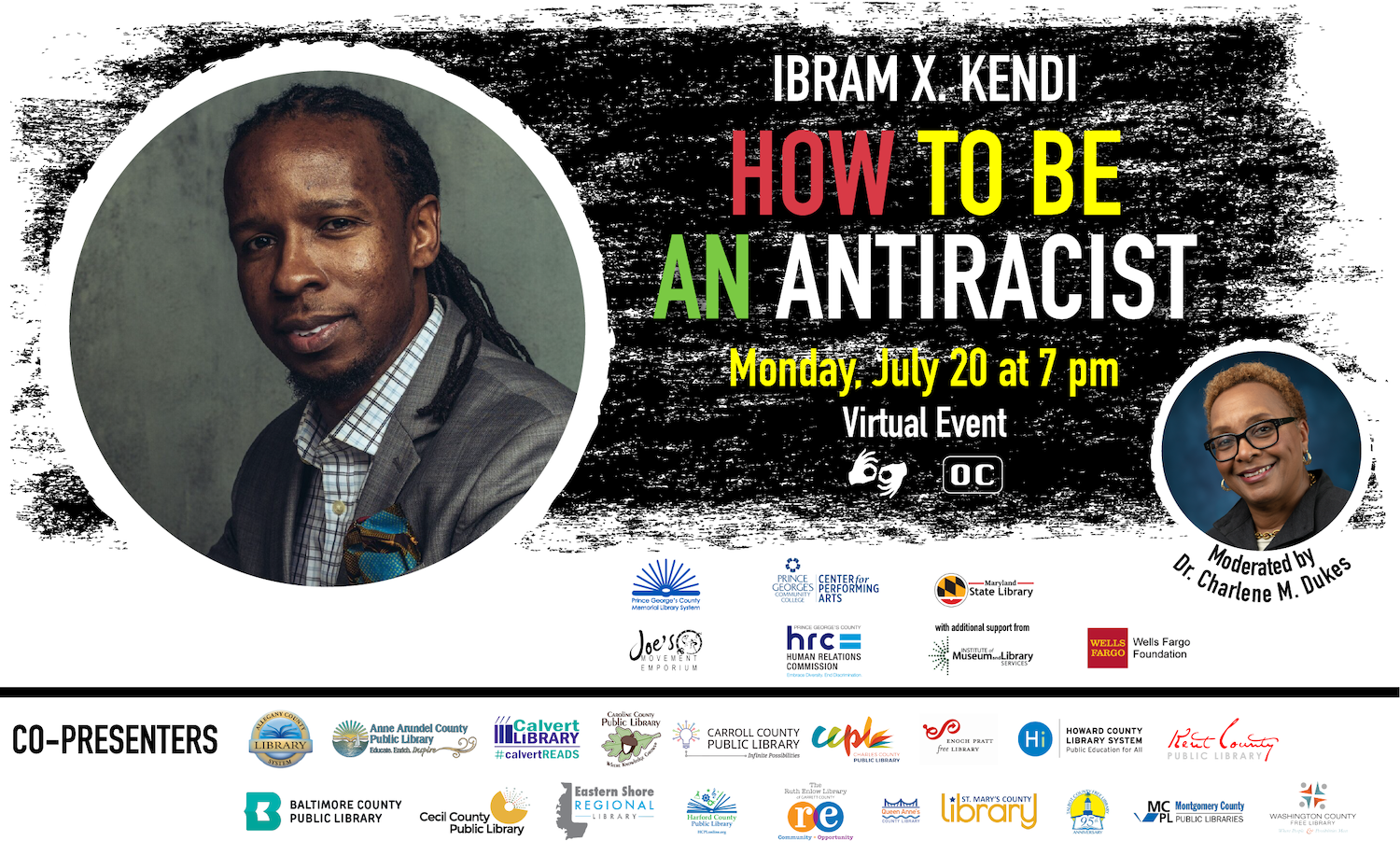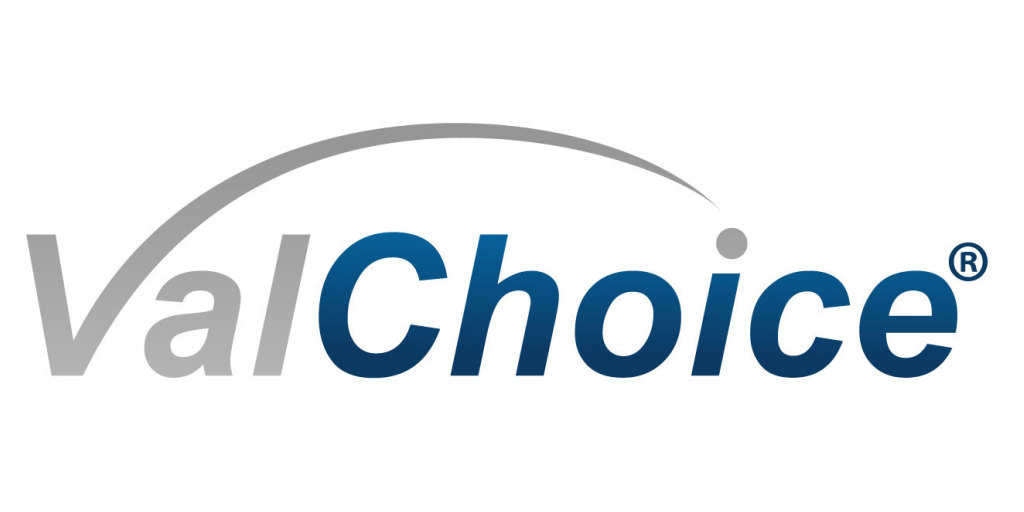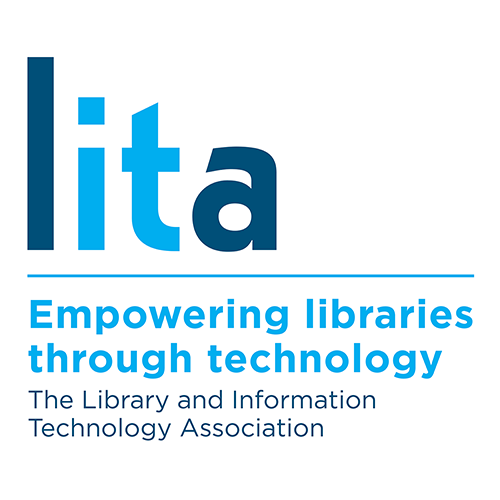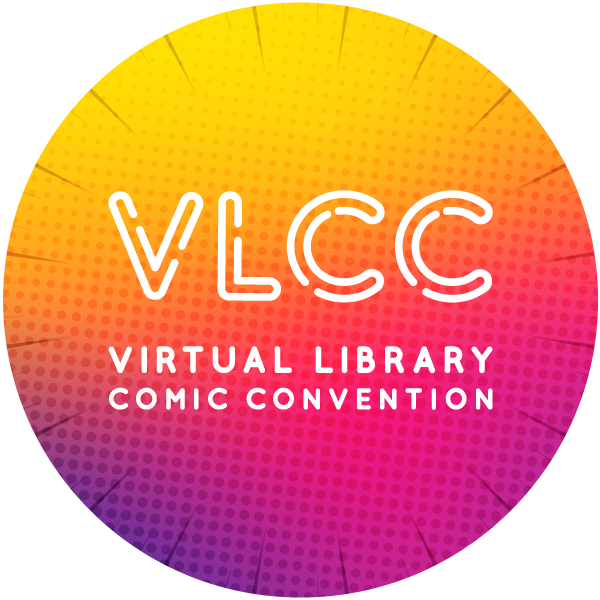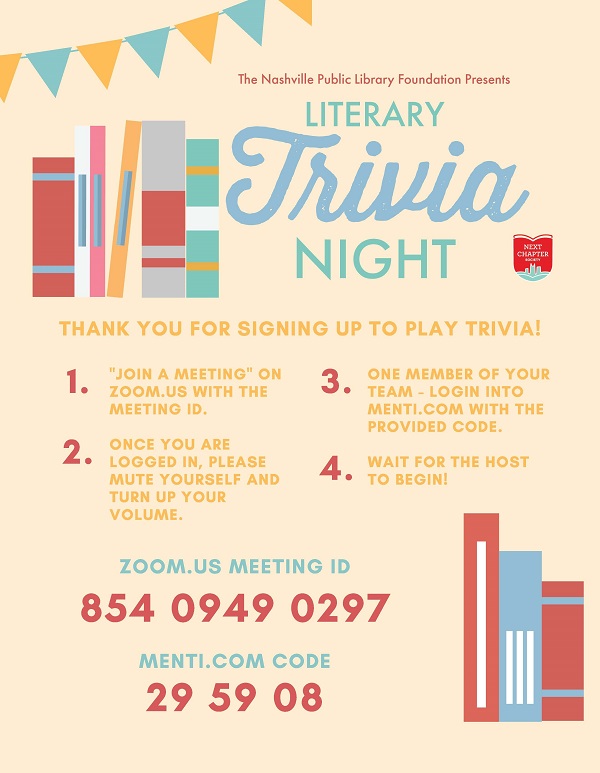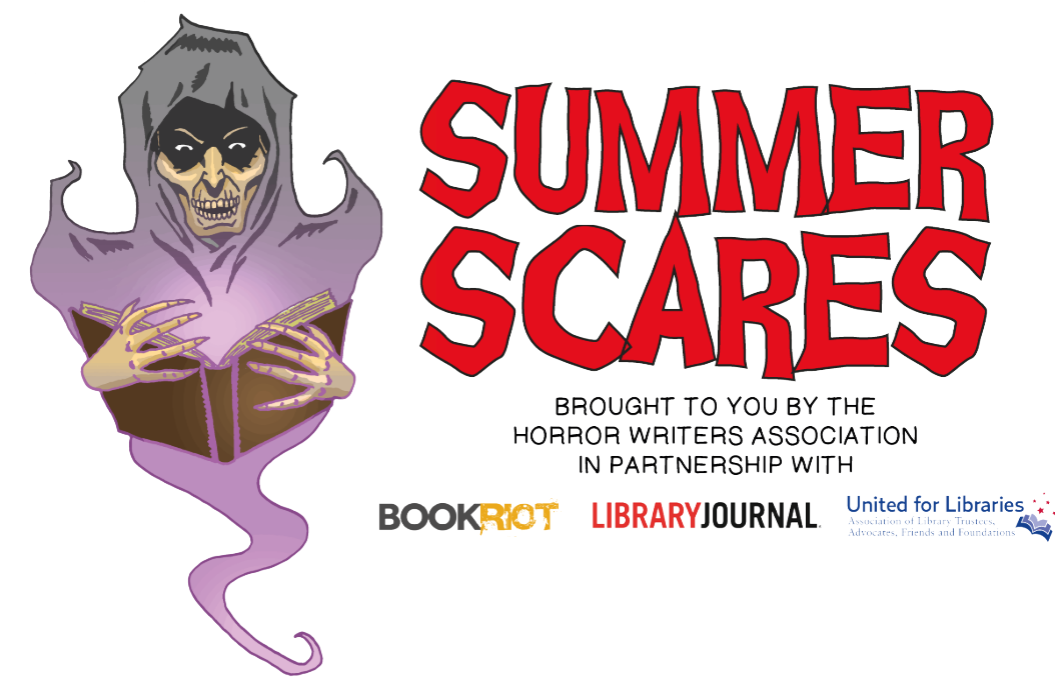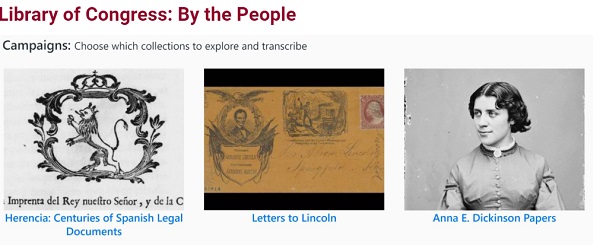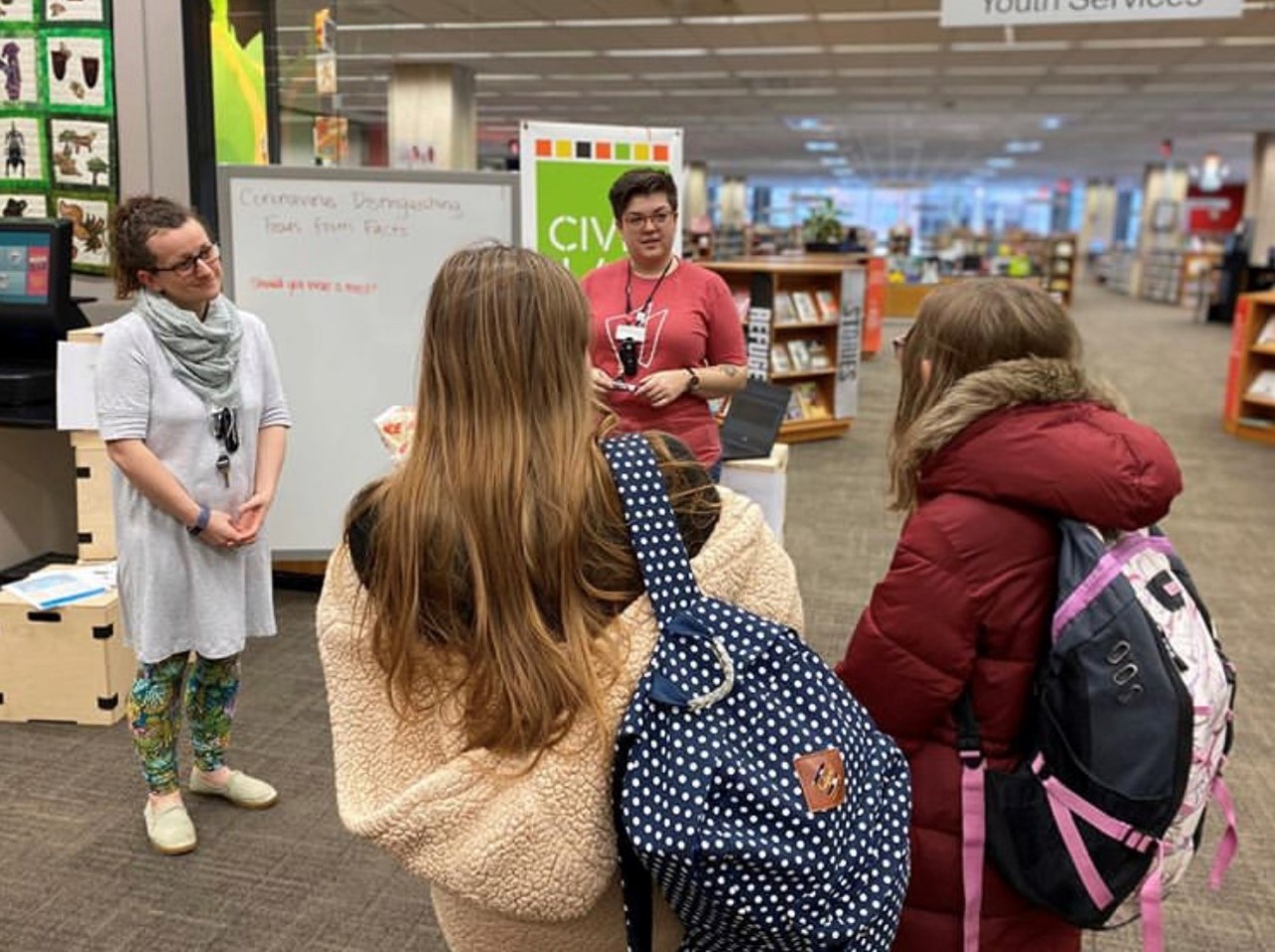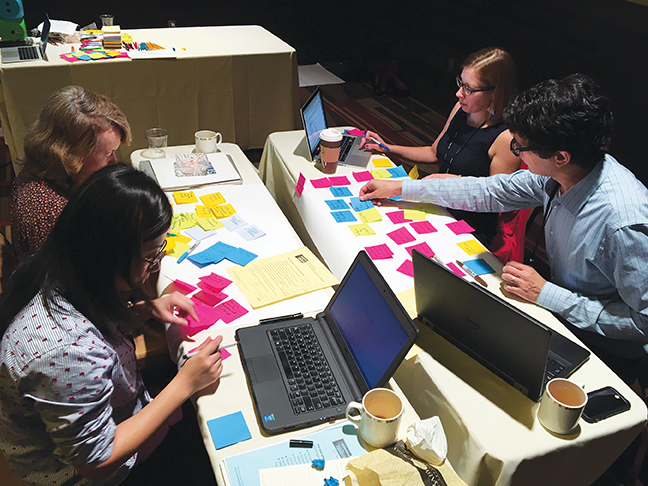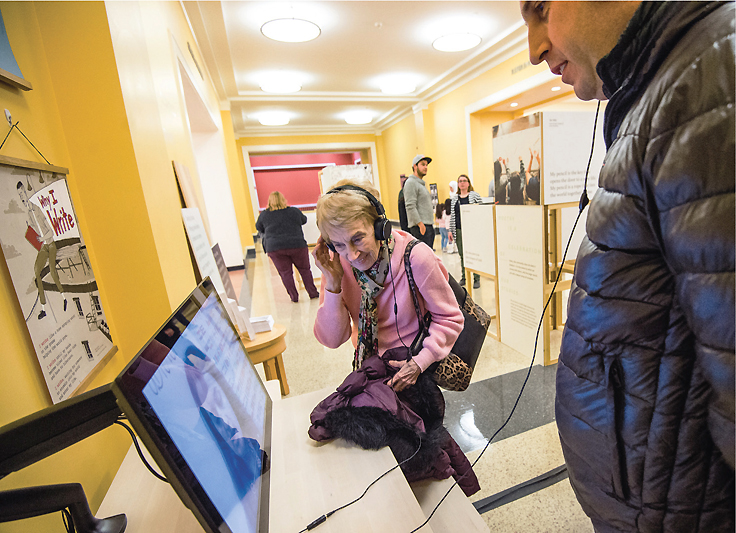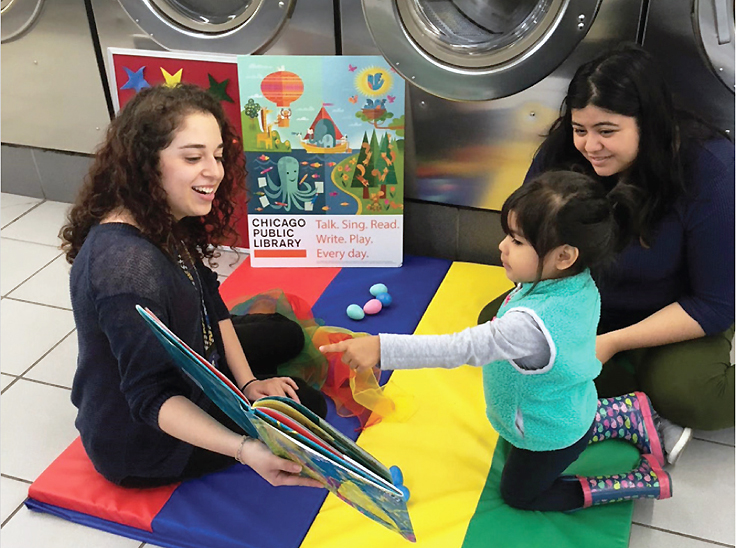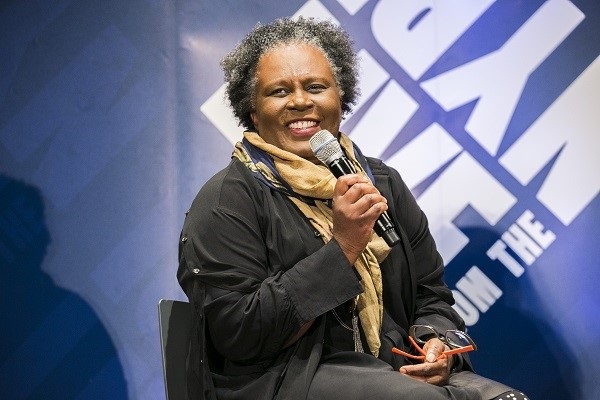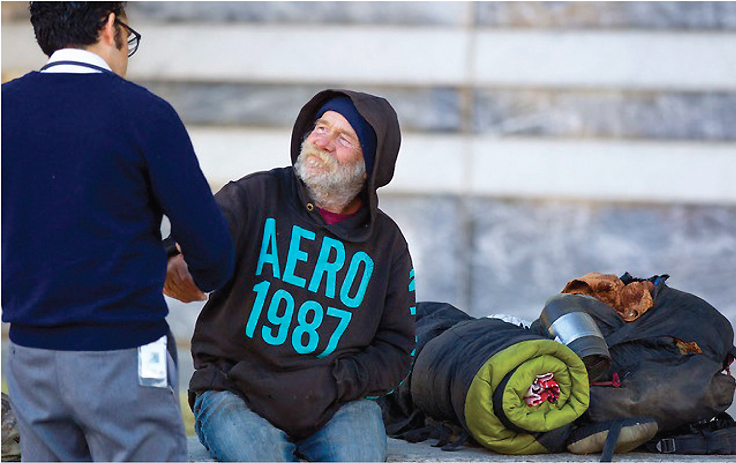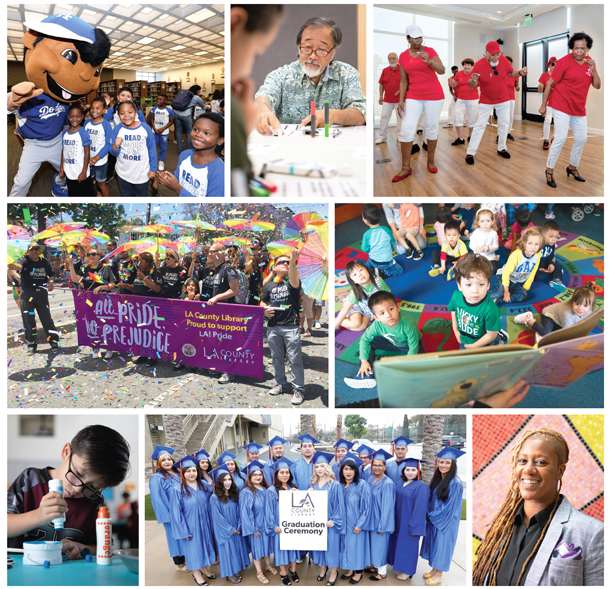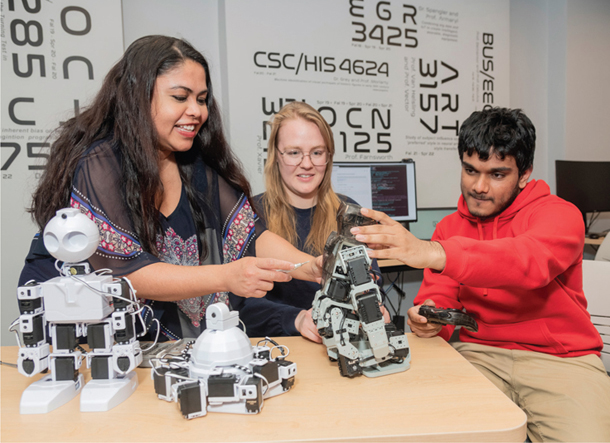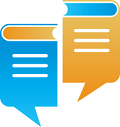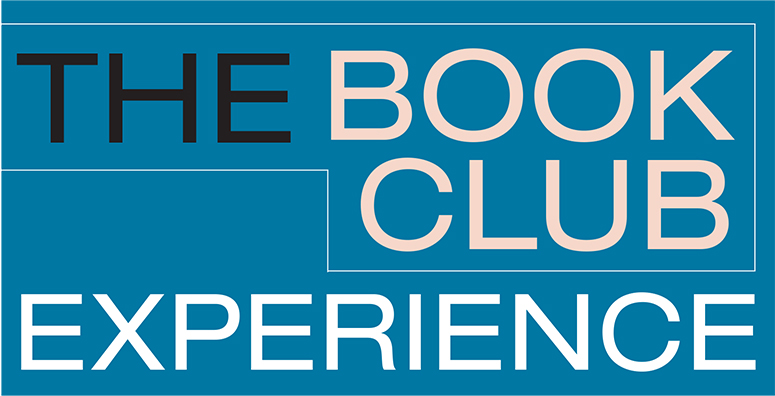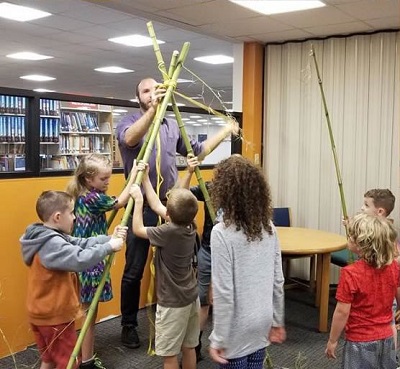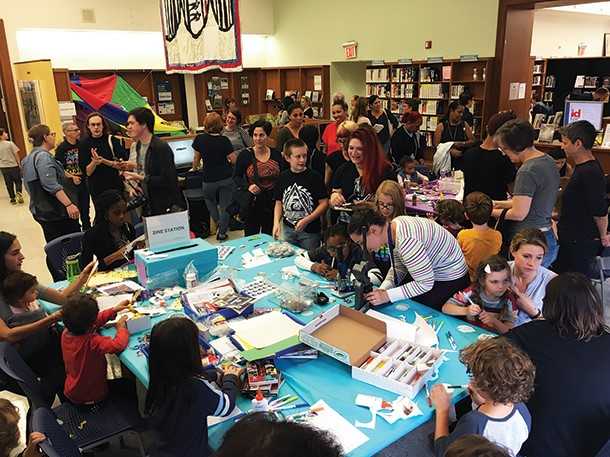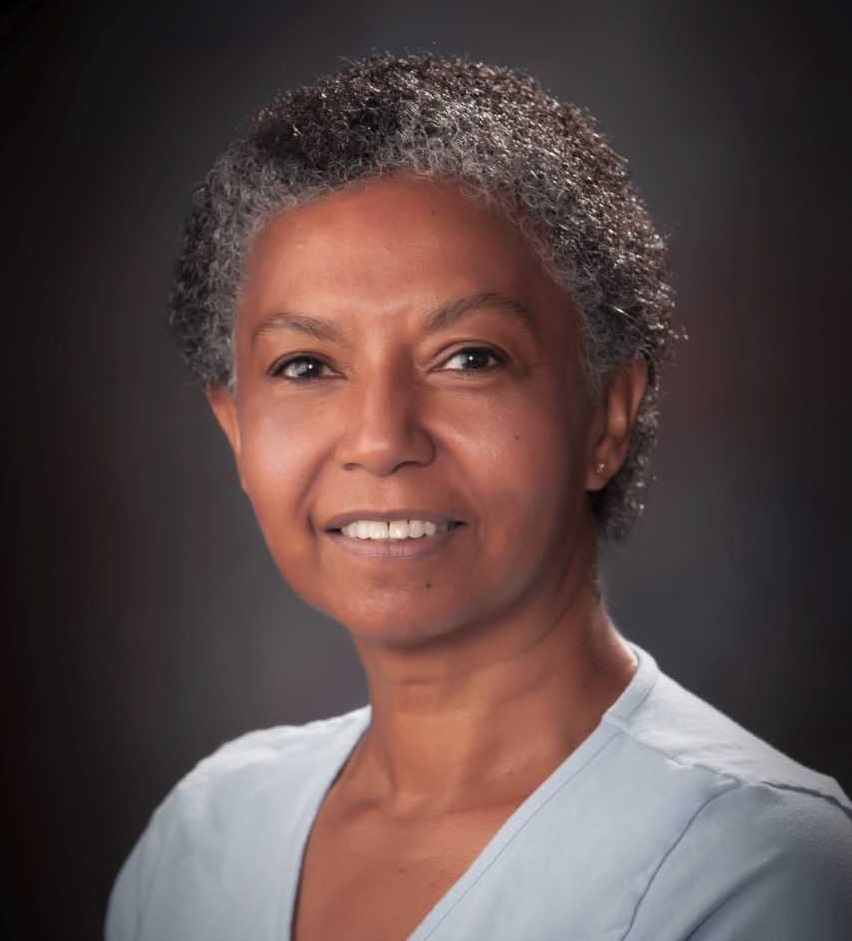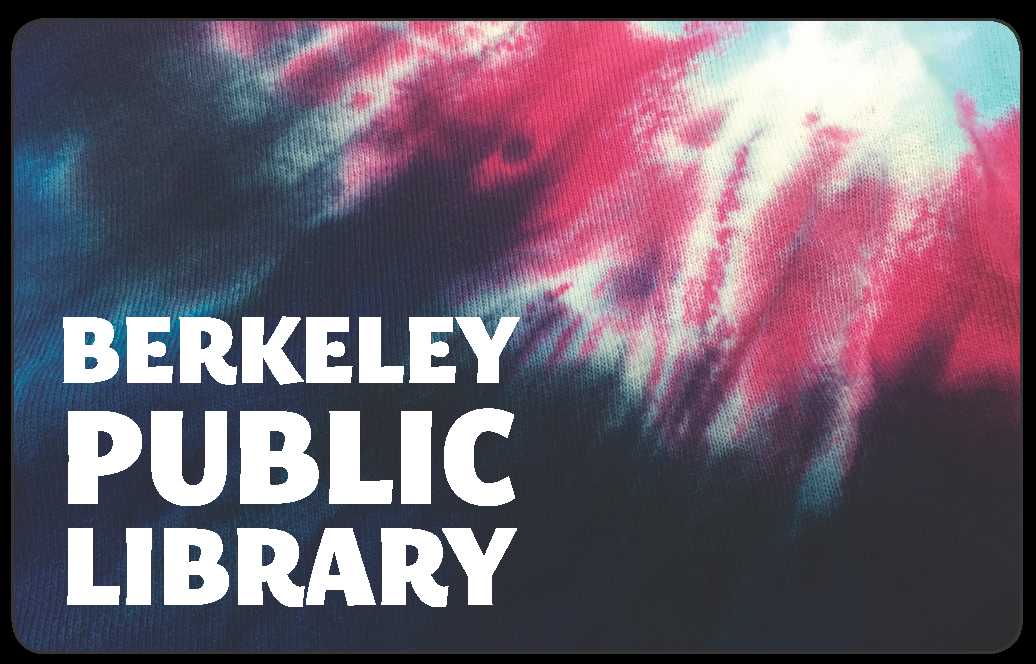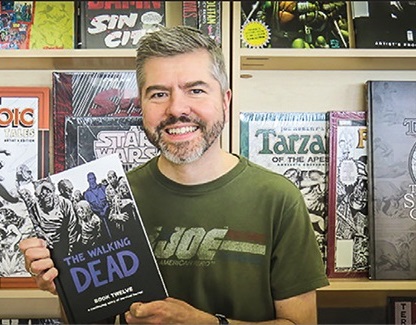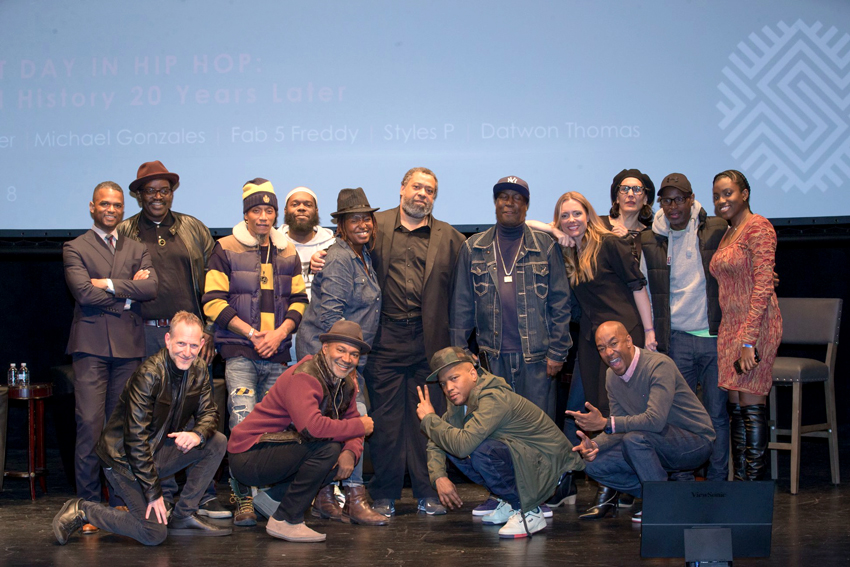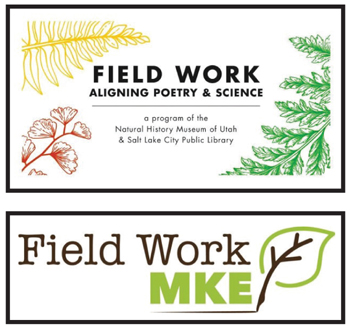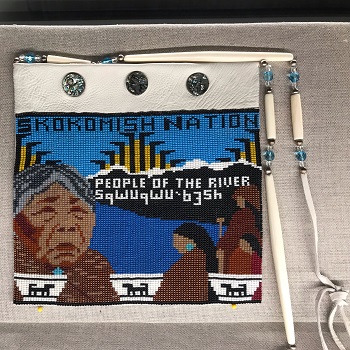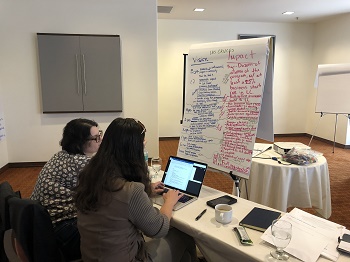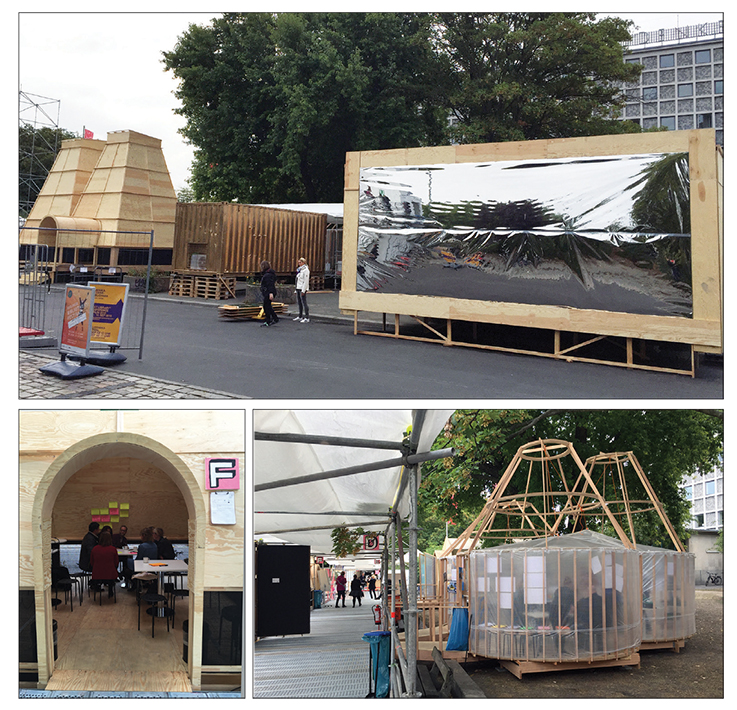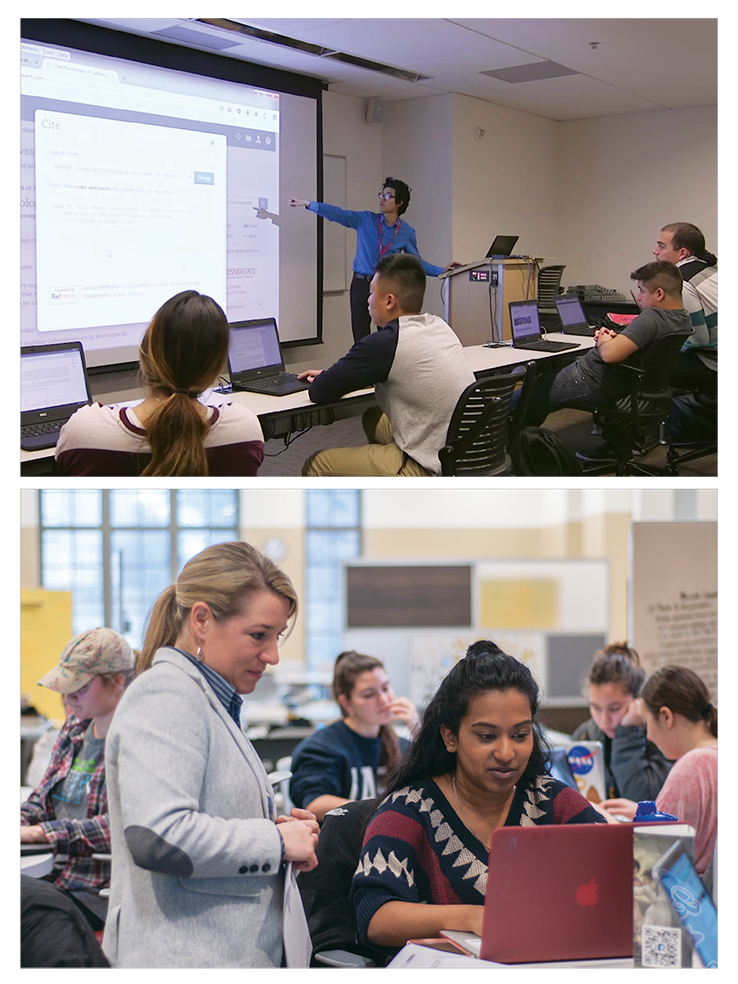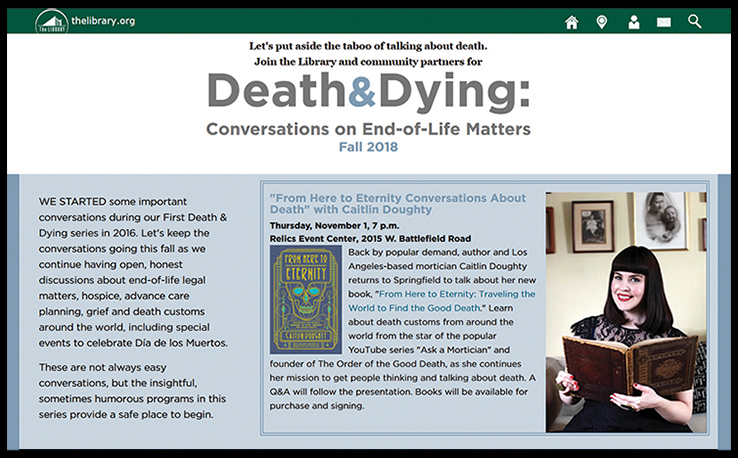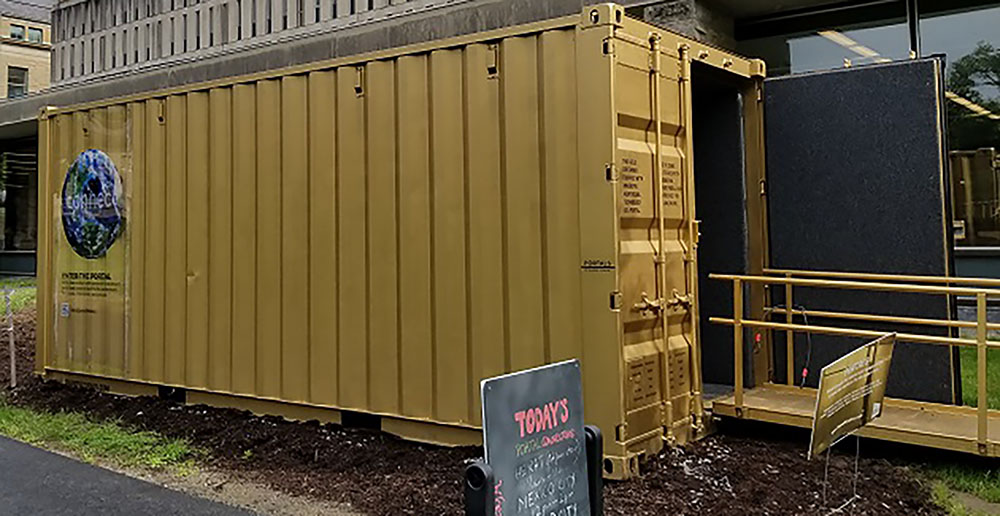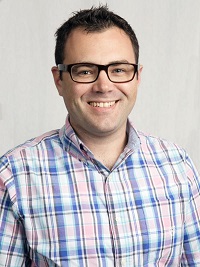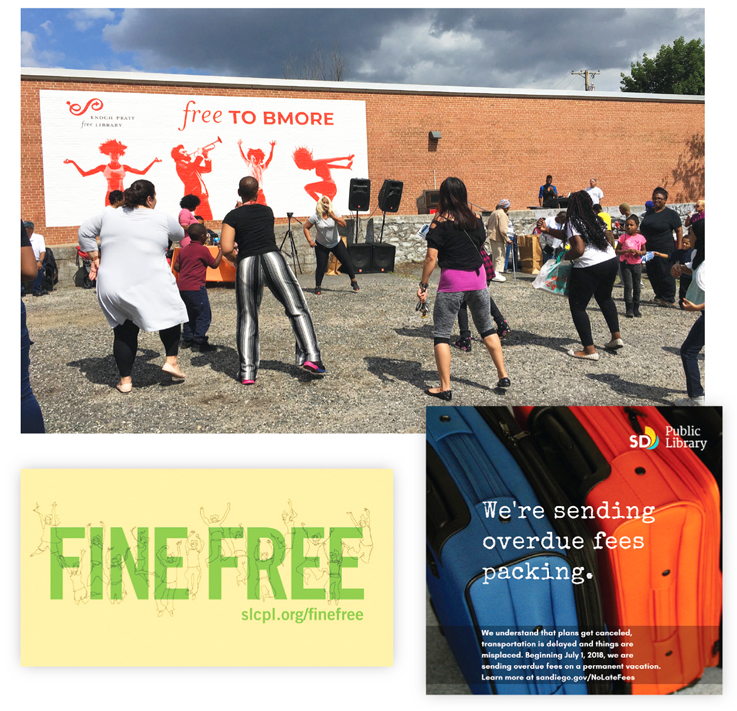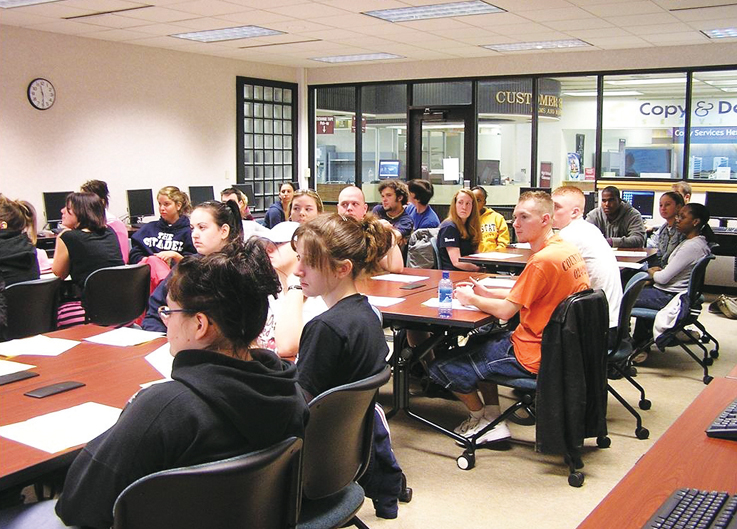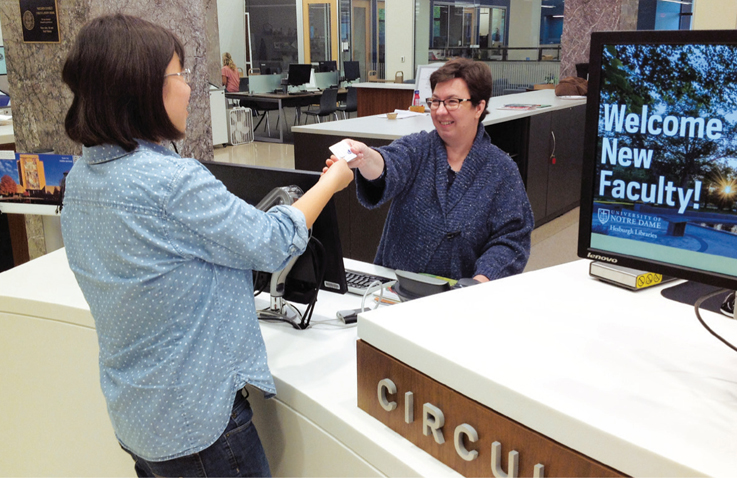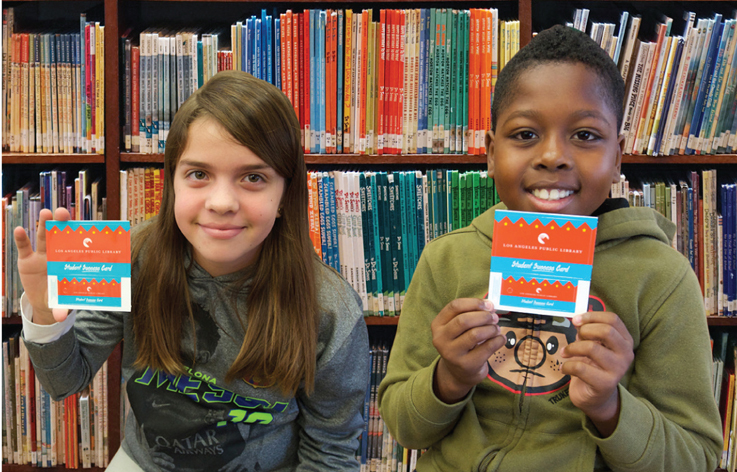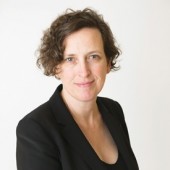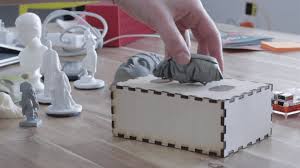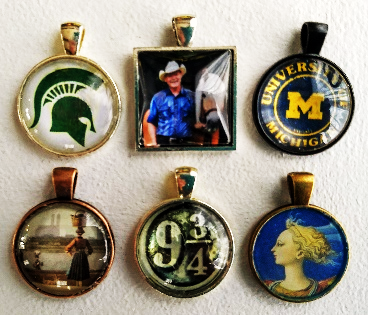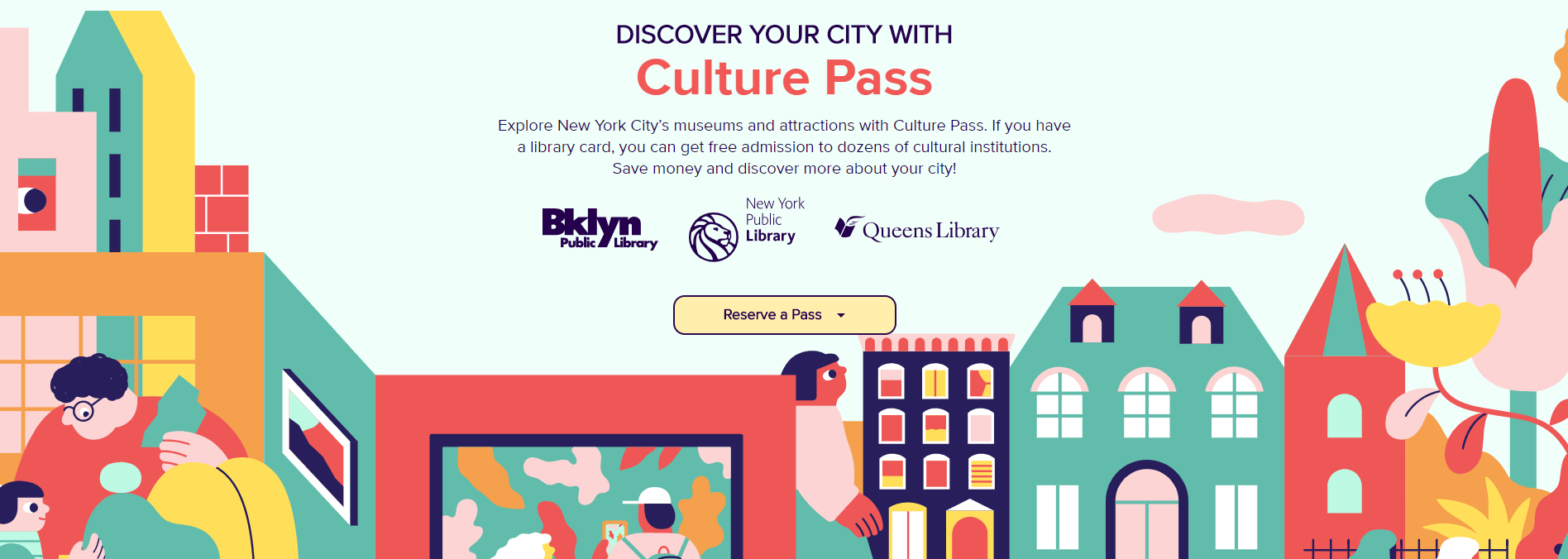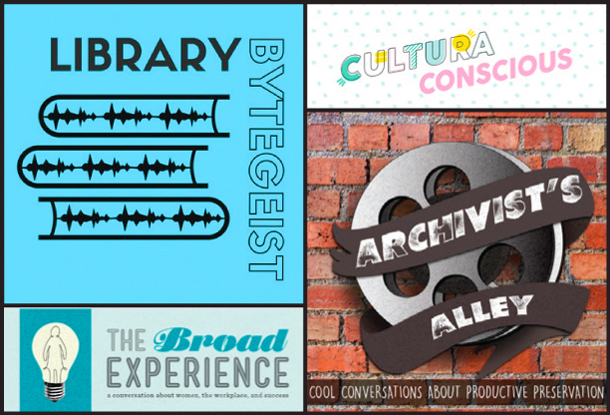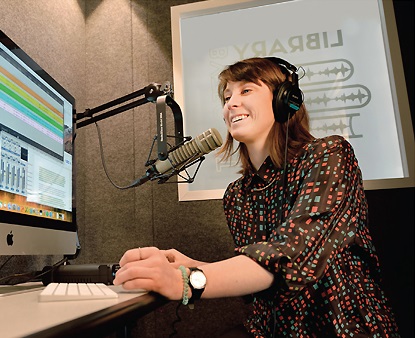Related
In celebration of National Bike Month (May in the United States, June in Canada), libraries are offering innovative ways to support bicycling all year round.
For Siva Ramakrishnan, being director of Young Adult Programs and Services for New York Public Library (NYPL)—part of NYPL’s Tisch Youth Education Programs—means giving teenagers the resources they need to grow, whether that involves 3-D printers or a sense of community.
Isaiah West, who taught seventh-grade English before becoming a librarian, has a passion for working with young people. “Teens get a bad rap,” he says. “They can be moody, apathetic, chaotic, and more, but they are also authentic, inspiring, and funny.… They give me hope that society might have hope for a brighter and longer future.”
As an American Library Association Emerging Leader, Nicollette Davis is always looking for ways to improve the library field. Through the We Here organization, she helps BIPOC library and information science professionals support each other in a welcoming space.
Monnee Tong’s career has been shaped by her passion for social justice, which carries through to her work as supervising librarian at San Diego Public Library.
On Saturday, March 16, a standing-room-only crowd—especially notable for one of the first warm days of spring and the day of New York City’s St. Patrick’s Day parade—packed into Queens Public Library's (QPL) Queensbridge Tech Lab, a makerspace in the Long Island City neighborhood of Queens. Drawing them to the space was the Queens Name Explorer Edit-a-Thon, hosted by QPL’s Memory Project, Wikimedia NYC, OpenStreetMap US, and Urban Archive.
When the Centers for Disease Control and Prevention (CDC) officially declared an end to the COVID-19 public health emergency in May 2023, many libraries reported a transition back to what felt like pre-pandemic days, with children joyfully attending story times and crowds reconvening to hear their favorite authors. Yet, just as we breathed a collective sigh of relief at the formal end of one emergency, United States Surgeon General Dr. Vivek Murthy issued a new advisory warning of a pernicious health risk: loneliness.
Ericson Public Library, IA, needed a program that highlighted the varied dimensions of equity while bringing members of the community together—a program that demonstrated how diversity unites us, rather than divides us. We found that opportunity through round two of the American Library Association’s Libraries Transforming Communities grant, receiving funding to implement an equity project called “Activating Community Voices.”
Demand for educational video resources continues to grow. Apps including Craft & Hobby, Creativebug, and Hiveclass, as well as streaming DIY video from OverDrive and hoopla, are helping patrons learn how to do everything from sewing to pickleball.
Alicia Deal and KayCee Choi nominated each other for the same reason—their advocacy for d/Deaf (Hard of Hearing/Deaf) culture. The two have spearheaded Dallas Public Library programming for National Deaf History Month in April; Deal and Choi created programs about major league baseball player William Hoy and author and activist Helen Keller, among others, which drew about 100 patrons total.
On any given day, Schuylerville Public Library patrons might find director Caitlin Johnson stacking apples or cleaning the public produce fridge. Collaboration with local farmers, food pantries, and the Southern Adirondack Library System, NY, as part of the Farm-2-Library program has allowed SPL to offer tens of thousands of pounds of fresh produce to patrons free of charge.
Rakisha Kearns-White established the Cycle Alliance, a teen advocacy group that fights period poverty and the stigma of menstruation. Since spring 2020, more than 170 teens have attended workshops, helped with distribution days, or volunteered for Cycle Alliance programs. The Cycle Alliance has partnered with international and local organizations to offer period-product distribution days and safe-sex workshops, giving out 200 period kits since 2021.
Although students are the focus of her work, Quilantan-Garza has also helped more than 25 teachers earn certification as Microsoft Innovative Educator Experts—and her “Tech Yourself” online, self-paced microcredentialing courses help teachers and staff document how they are staying current with the latest educational tools and technology.
Courtney Shaw's innovative programming across numerous communities—including prisons and a local nonprofit that supports youth and adults experiencing homelessness—features Techie Senior classes to help decrease social isolation for the elderly, story time and early literacy education, youth STEM programs focused on coding and robotics, health and financial literacy programs, library card signups and mobile phone circulation, and arts and cultural offerings.
When a planned event came under attack, Downers Grove Public Library staff handled the hostilities, keeping safety a priority.
Our initial goals were to create a unique outreach event for our communities; give students, faculty, and staff an outlet for creativity and civic engagement; and provide student internship opportunities grounded in experiential learning. We felt that a live concert would be a great format, as music is an accessible art form and allows diverse voices to be heard.
Prince George’s County Memorial Library System, MD, last August hosted its first annual social justice summer camp. During five full days at five separate branches, groups of teens learned about the history of social justice movements along with project management skills to help effect change in their own communities.
Youth sports and fitness play a central role within communities—and so do public libraries. Now, an online platform from Hiveclass aims to bring the two together by helping libraries become a hub for kids and their families to learn how to play a sport, keep fit, and otherwise remain active.
We enable libraries to focus on their patrons and the services they enjoy, which is why we love providing a full suite of software solutions that are modernized, 508 compliant, aesthetically pleasing, and exceed security protocol.
Youth Services Librarian Elaine Pelton from the Washington, DC Public Library shares how to have a successful Evil Laugh Contest virtual library program in 16 easy steps.
While many libraries built their own online book clubs, especially during COVID shutdowns, a growing array of larger options from library vendors and consumer-facing brands alike give libraries plenty of choices for connection.
Openness, accessibility, democracy, and the dignity of the public. We at Brooklyn Public Library had these words in mind when we started to work on our 28th Amendment Project.
No matter how audience behaviors ultimately swing in the future, hybrid events will be a pillar of our new normal. We must continue to refine our capability of being anywhere and everywhere for anybody.
Over the past 16 months, COVID-19 has forced public libraries to consider how to contribute to their patrons’ health and well-being. Anythink Libraries in Adams County, CO, has developed Renew, a new initiative designed to offer its participants both helpful programs and an online method of tracking their progress developing a lifestyle that is healthy physically, mentally, and emotionally.
Libraries and archive genealogy services are adapting to widespread DNA testing and pandemic challenges.
Librarians are often asked to help patrons with genealogy research; these print titles and online resources will be valuable, whether librarians are experienced with the topic or relative newcomers.
Library gardens help address food insecurity, ease environmental impact, provide stress relief, and serve as pandemic-safe space for community connection.
Whether gardening, sending up a rocket, or savoring an art exhibit, taking programs outdoors lets libraries offer in-person connection in line with COVID safety protocols.
When Baltimore County Public Libraries (BCPL) implemented its successful Lawyers in the Library program at its Essex branch in 2016, it was a way to offer legal help to those in need who didn’t have the means to hire a lawyer on their own. However, library staff began to realize that there was more that could be done. So the library and Maryland Legal Aid decided to create the Mobile Library Law Center.
In Maryland, public libraries across the state have developed models for maximizing the impact of social justice–focused virtual programs by copresenting and cross-promoting selected events. Maryland libraries were able to rely on high quality programs from neighboring systems to provide a more robust lineup of virtual events.
ValChoice, an independent data analytics company focused on the U.S. insurance industry, is offering public and academic libraries permanent, unlimited access to online calculators, insurance company ratings, tutorials and “how-to” videos, worksheets, and other tools designed to help users understand how insurance—such as car and home insurance—is priced, and how to decide on policies based on their age, deductibles, coverage limits, and other factors.
Seven experts discussed long-term trends that are becoming even more significant in the wake of the COVID-19 pandemic.
In partnership with 10 state libraries, BiblioLabs has announced that more than 4,000 digital comics, graphic novels, and children’s materials will be available for free, unlimited simultaneous use through August 31. In addition, the library partners will be participating in a new Virtual Library Comic Convention scheduled to be held on July 30.
Many libraries are cancelling their galas and other in-person fundraising events due to the global pandemic. As a member of the Next Chapter Society (NCS), which works with Tennessee’s Nashville Public Library Foundation to fundraise for the Nashville Public Library (NPL), I worked with my committee to shift our summer activities online.
Librarians can now download the 2020 Summer Scares programming guide, which offers booktalking tips, read-alikes, and creative programming ideas—many of which can be done virtually.
Consider these library (and library-adjacent) crowdsourcing projects as a fun way to connect to the community and make a difference during the COVID-19 outbreak.
Public and academic libraries alike have been educating their users, holding seminars, and doing Q&As to help people learn about the disease as well as dispel misconceptions.
By working with local experts on civic open data projects, libraries can become the heart of the smart city.
In times of tight budgets and fewer staff members, passive programming—temporary, self-directed activities or exhibits that users interact with in their own time—can answer a library’s need to engage patrons with less funding and fewer human resources. Many libraries have taken the idea a step further, creating initiatives that don’t require active staff interaction or dedicated program hours, but still interest and challenge patrons, address specific community needs, and even contribute to a library’s greater mission.
By bringing books, programs, and services to community members in places they already go—expanding the concept of what libraries do in the process—libraries are redefining outreach.
On June 6, poet, essayist, playwright, and 2016 MacArthur Fellow Claudia Rankine launched the New York premiere of her first published play, a new one-act called The White Card, at the New York Public Library (NYPL) Steven A. Schwarzman building.
Libraries across the country are finding new ways to support patrons experiencing mental health challenges—as well as the staff who serve them.
Connecting directly with customers to find out what they want and need; training staff to focus on equity and to recognize and eliminate hidden biases; developing programs and services for underserved and marginalized populations; and seeking out public sector and private partners made LA County Library a model for the future of libraries and the Gale/LJ Library of the Year.
When the University of Rhode Island (URI) opened its new artificial intelligence lab on the first floor of the Robert L. Carothers Library and Learning Commons last September 2018, URI president David M. Dooley said that “this lab will be more than just a technology center. It will be a place of ideas, discussion, and debate.”
Looking for book club information from publishers? Check out this list of library marketing representatives.
Innovative approaches and a leadership style that's right for your community can make your book clubs a success.
On March 9, Baltimore County Public Library (BCPL) and Baltimore City’s Enoch Pratt Free Library (EPFL) joined forces to launch Entrepreneur Academy, a free series of classes offering a wide range of topics for people who have an entrepreneurial streak. According to EPFL director Heidi Daniel, the program’s creation was both the outcome of the two library systems investigating ways to collaborate and the result of community feedback.
Many Americans take for granted the ability to read and the easy access to books. That’s because public libraries continue to lead the way to help foster a reading culture and love of books in local communities nationwide. Programs being implemented by public libraries are not only inspiring but have changed people’s lives for the better. Let’s take a look at a few success stories around the country.
The most meaningful library programming comes out of community collaboration. This was certainly the case with Genderful!, a series that kicked off on October 14, 2017, at the Brooklyn Public Library as an event for children and caregivers to explore gender through art and creativity.
How can a community have brave, challenging conversations? That was the question St. Paul, MN Mayor Melvin Carter III posed to Catherine Penkert, director of the St. Paul Public Library. Her response was to launch the citywide reading initiative, Read Brave St. Paul, in January and February.
America’s approximately 17,000 public library outlets’ staff are focused on meeting the needs of their communities, providing innovative programs, and connecting community members to resources that make a difference in their lives. But all too often they are reinventing these things from scratch.
On December 1, 2018, Berkeley Public Library (BPL), CA, rolled out its new Easy Access Cards, designed for library customers without a fixed address. These include patrons who are experiencing homelessness, lack current documentation, are in transition between addresses, or are in the foster care system.
At New York Public Library's Schomburg Center, artists and writers convened to discuss an iconic image in rap history and celebrate a recent book collecting images of hip-hop artists.
Using the Cornell Portal outside Olin Library, Emma Wagner ’21 talked with two young people from Kigali, Rwanda, who told her health care is better in urban areas than rural ones and explained the country’s universal health care system. The Rwandans also asked Wagner about the MeToo movement in the U.S.
The End of Fines?
As more and more libraries are finding, eliminating fees lowers barriers while still bringing books back into circulation.
Teaming Up for College Readiness
MOU: A Tie that Binds
Grade A Partnerships
Increasingly, public libraries have been finding creative ways to join forces with school administrators, librarians, and media specialists on collaborations that meet students’ evolving needs in and out of school. Clear lines of communication on both sides spell success for districtwide collaborations.
From the Smithsonian Libraries “Unbound” Blog: Museum in a Box (MiaB) is the newest project that is allowing the Smithsonian Libraries to bring their artifacts and images into the hands of young students all around the nation.
A new program being launched today by New York City’s three major library systems will give cardholders free admission to 33 museums and other institutions. Culture Pass, designed to encourage underserved communities to take advantage of the city’s cultural bounty, will let users reserve passes once a year.
Read more at LJ's INFOdocket.
The Theodore Roosevelt Presidential Library and Museum Foundation has abandoned a proposal that would have split the museum and library between Theodore Roosevelt National Park and Dickinson State University.
Changing Tracks | Careers
The appeal of podcasts is easy to understand—they’re free, easy to sample and subscribe to, and there are now so many that it’s possible to find a show to match any interest and satisfy any reader.
The planned Barack Obama Presidential Center will not contain a traditional presidential library of physical archives from Obama’s two terms as president, but it will hold a branch of the Chicago Public Library to serve the Jackson Park neighborhood of Chicago’s South Side.
Have a great idea for a podcast? It’s an exciting challenge and opportunity to share your message with the world. However, podcasting also requires technical skill, a host of logistical decisions, and extreme attention to detail. So how do you start a podcast? Deliberately. Willingly. And with a lot of patience.
ore than 300 residents of Orange City, IA, signed a petition in February urging the Orange City Public Library (OCPL) to label and separate books containing LGBTQ (lesbian, gay, bisexual, transgender, and questioning) content and themes. The OCPL board ultimately decided to group books by subject and subcategory rather than alphabetical order by an author’s name.
ALREADY A SUBSCRIBER? LOG IN
We are currently offering this content for free. Sign up now to activate your personal profile, where you can save articles for future viewing
